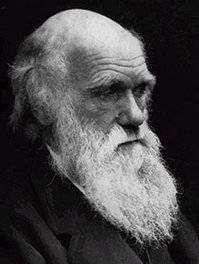In the last post in this series I suggested that one of the important issues in the current discussion of science and faith in our culture deals with knowing;
how do we “know” and understand? None of us can know everything in every subject. How many
of us really understand particle physics, quantum mechanics, genetics,
geophysics, ANE culture and language, or how many of
us read Greek and have real expertise in 1st century Roman
and Jewish culture? We all trust authorities for much of our knowledge. In this post I want to consider the importance of authority and expertise in the discussion of science and faith.
The key question today is this – What authorities do you trust and how do you decide? What is the ranking order of your authorities from top to bottom? Does that ranking order shift from subject to subject? How do you find authorities you can trust? How authoritative is your pastor for what you believe?
Most Christians who reject the arguments for evolution, common descent,
or the age of the earth have no real understanding of the issues
involved or the depth of the evidence. But this isn’t just a
Christian problem of course. Studies also show that many (likely most) Americans
who claim to believe in natural selection have no real understanding of
evolution and are unable to describe how natural selection works. Why do they believe what they believe?
In the absence of expertise, we evaluate the source of a claim or assertion. If the source is deemed trustworthy the claim is believed.
This is a far-reaching practice and extends beyond scientific or technical knowledge. I suspect that the average Christian evaluates many claims and assertions relating to theology and doctrine in the same manner – by evaluating the credibility of the source and trusting those deemed authoritative.
Of course, on one level this reliance on authorities and experts is necessary. None of us can possibly know everything about everything. None of us can master the body of
human wisdom – the acquired knowledge of the human race.
But this practice leads to some real dissonance.
The vast majority of Christians who truly understand the evidence
for the age of the earth take an ancient earth as a given.
The vast majority of Christians who truly understand the
paleontological or genetic evidence take the general schema of
evolution as a given. This is not to say that we understand everything
– there are legitimate questions that can be raised. But the general scheme holds.
Christian Scholars who really dig into Biblical Studies have a very
hard time assenting to the positions of the conservative systematic
theologians on many issues related to scripture.
Yet the irony of this whole situation is that even within the church we respect our own expertise – but feel free to doubt, question, or
disregard the expert conclusions of our fellow Christians. We question the authority of experts and accept the authority of other sources, often
without looking at the evidence. The geologists will insist on old earth but feel
free to doubt evolution; the biologists will insist on evolution but
feel free to doubt the archaeologists; the biblical scholars will
insist that we look honestly at the development of the OT from the
sources and the incorporation of ANE myth to tell a theological truth,
but feel free to doubt the genetic evidence for common descent.
Which brings us back to the key question we must ponder and discuss: As Christians how should we evaluate claims and assertions requiring technical knowledge? Which experts should we trust and why? And how do we decide between conflicting claims of expertise?


